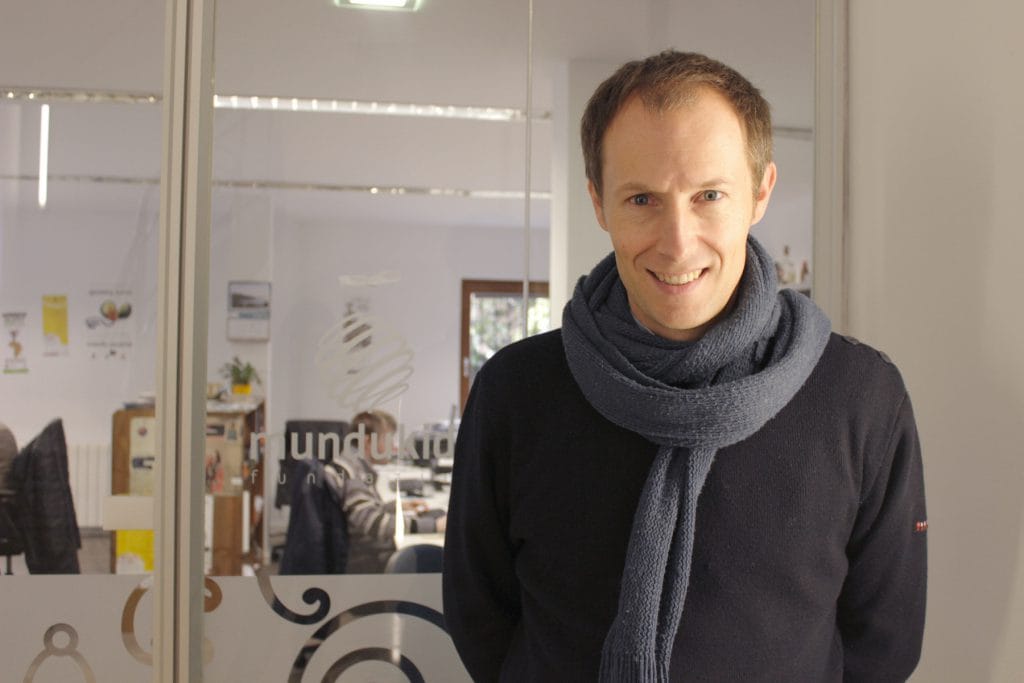Josu Urrutia Beristain / Director of Mundukide
As we enter the de-escalation phase, positive messages in the media have become more widespread in the last few days, especially on television, highlighting the more human side of society. However, I think that this crisis has shown each of us as we are or perhaps even revealed a more true and complete version of ourselves. On the one hand, we’ve seen healthcare workers behaving like true heroes, risking their lives to save the lives of others; we’ve seen people organise across towns and neighbourhoods to help the neediest, by doing the shopping, going to the pharmacy, talking on the phone, or making and distributing masks. But we’ve also seen selfish holidaymakers during Easter week, police abuse, excessive Amazon shopping while local commerce struggles to survive, balcony snitching, middlemen raising prices and sending faulty materials causing infection among healthcare workers.
A similar picture emerges when we analyse the consequences of the latest global crises. Thus, while national health systems were created in many European countries in the wake of the 1918 influenza epidemic, the foundations of the modern welfare state were defined after the 1929 stock market crash and World War II. However, after the 2008 crisis came extraordinary precariousness and inequity which now has half of the world’s wealth in the hands of a few dozen privileged people.
So now that we’re wondering what our society will be like after the pandemic, I think it’s appropriate to share a few things that I will at least try to carry over to my post-Covid life.
The first thing we must change is the objective. Our lives cannot be based on continuous growth, accumulating more and more while others lack the basic necessities, on reaping in profits while and paying less tax. The alternative is living better. In some cases this will mean living longer, certainly in many countries of sub-Saharan Africa where life expectancy at birth is barely over 50 years – 30 less than ours. But in other cases such as ours, it will mean living differently, more sustainably, respecting nature and thinking not only of ourselves. This will inevitably lead to less consumption and less travel. For this new goal, GDP cannot be the only indicator. As an alternative I propose the Human Development Index, which at least measures life expectancy and education levels, in addition to wealth in terms of GDP. Or why not the World Happiness Report, which measures the state of global happiness based on levels of corruption, health and freedom, among others.
Better living means leaving no one behind, as stated in the objectives of sustainable development goals. Not simply depositing seniors in nursing homes, or children in daycare centres, or youth in schools so that the adults can go out and produce. This means restoring the importance of care to incorporate it fully into our structure of society. Leaving no one behind means changing the paradigm so that 50 million people in the world will no longer have to flee their homes due to violence and persecution. It also means not letting over 800 million people go hungry around the world and preventing more than two million people from dying of starvation and its effects every year.
The new society must be based on human rights, many of which are forgotten in times of crisis. The priority must therefore be to restore the focus on rights and fundamental legal guarantees.
Women must be at the centre of the new society we are building. The countries that have done the best handling the health crisis from the pandemic are led by women. Why then are there so few countries around the world with female leaders, or so few women at the helm of businesses and cooperatives? It everyone’s job, and particularly that of men, to promote this great change for the benefit of society.
This new life must be organised with the same collaborative system used in scientific research in times of pandemic to share knowledge and developments. We must not repeat the model of politicians. And I don’t just mean Bolsonaro and Trump. You don’t have to look too far to find disputes over who gets full control, or to find as many plans to deal with the pandemic and prepare for de-escalation as there are countries in the world.
We do not have to invent a new model of enterprise in this new reality. In contrast to ‘whoever has the most power rules’, cooperatives offer a model of equitable distribution of wealth, one person, one vote, ad based on the values of self-help, self-responsibility, democracy, equality, equity, and solidarity. This commitment to community has been foundational since the Rochdale Pioneers. The challenge now, as Arizmendiarrieta pointed out, is to build a cooperative movement and solidarity on a global scale.
At Mundukide we will continue to work toward that goal. SOLIDARITY CANNOT STOP.
